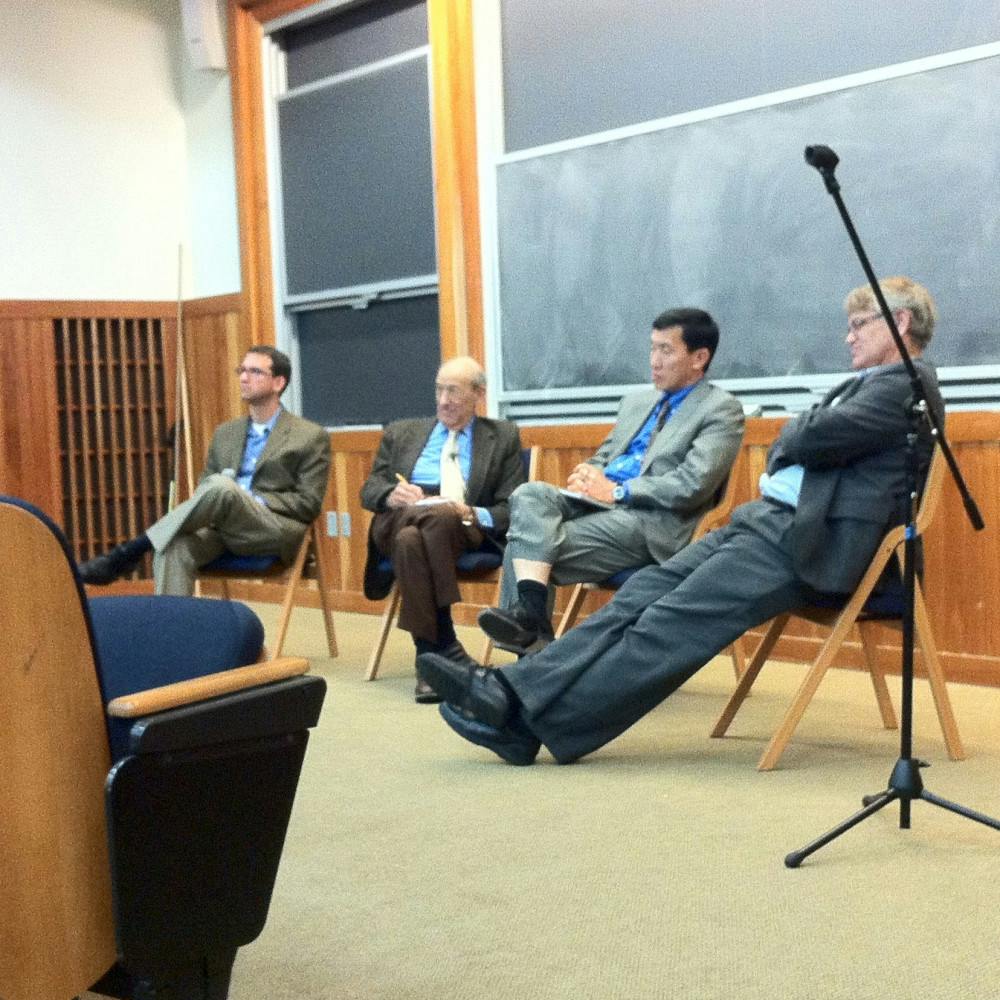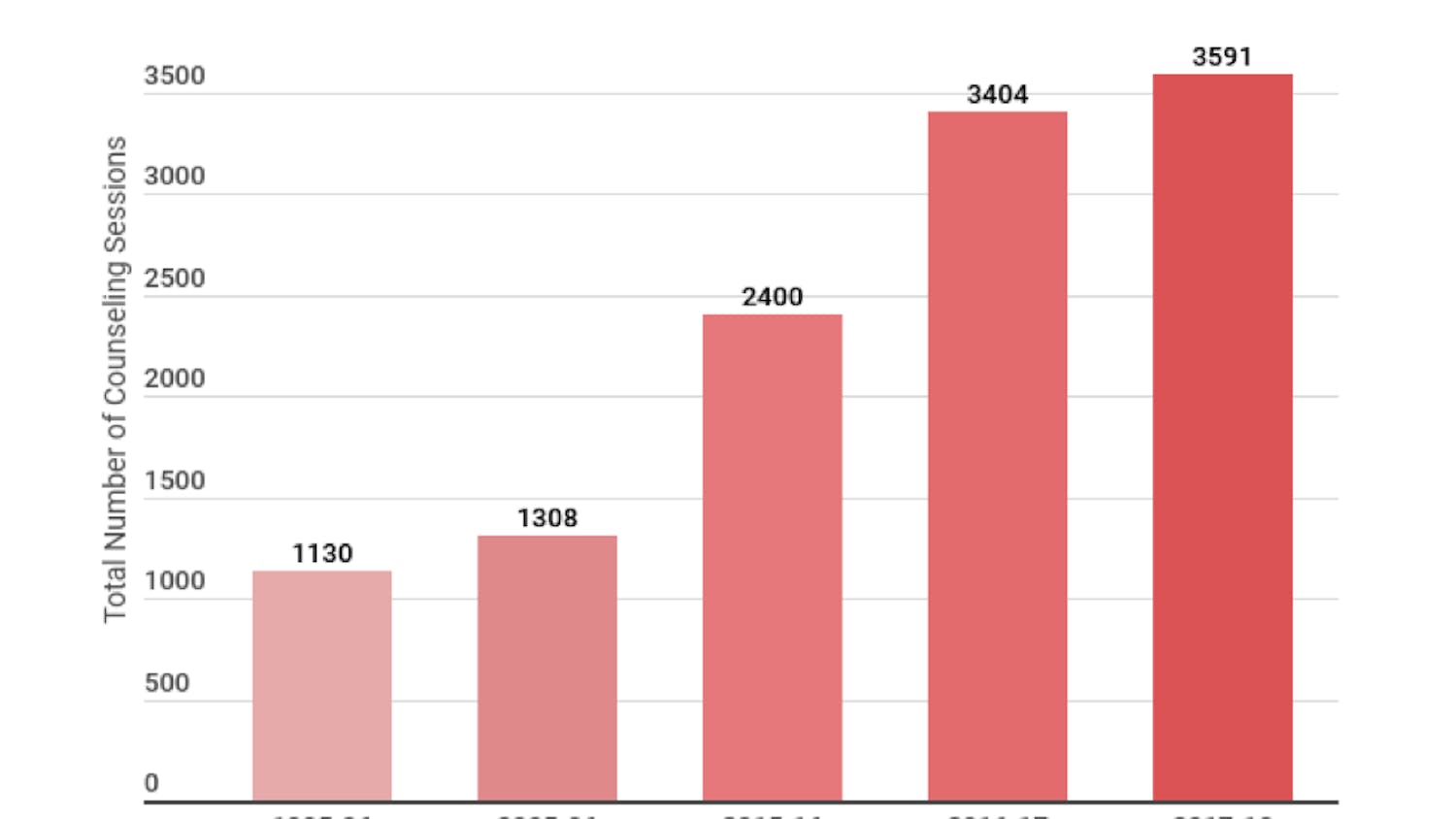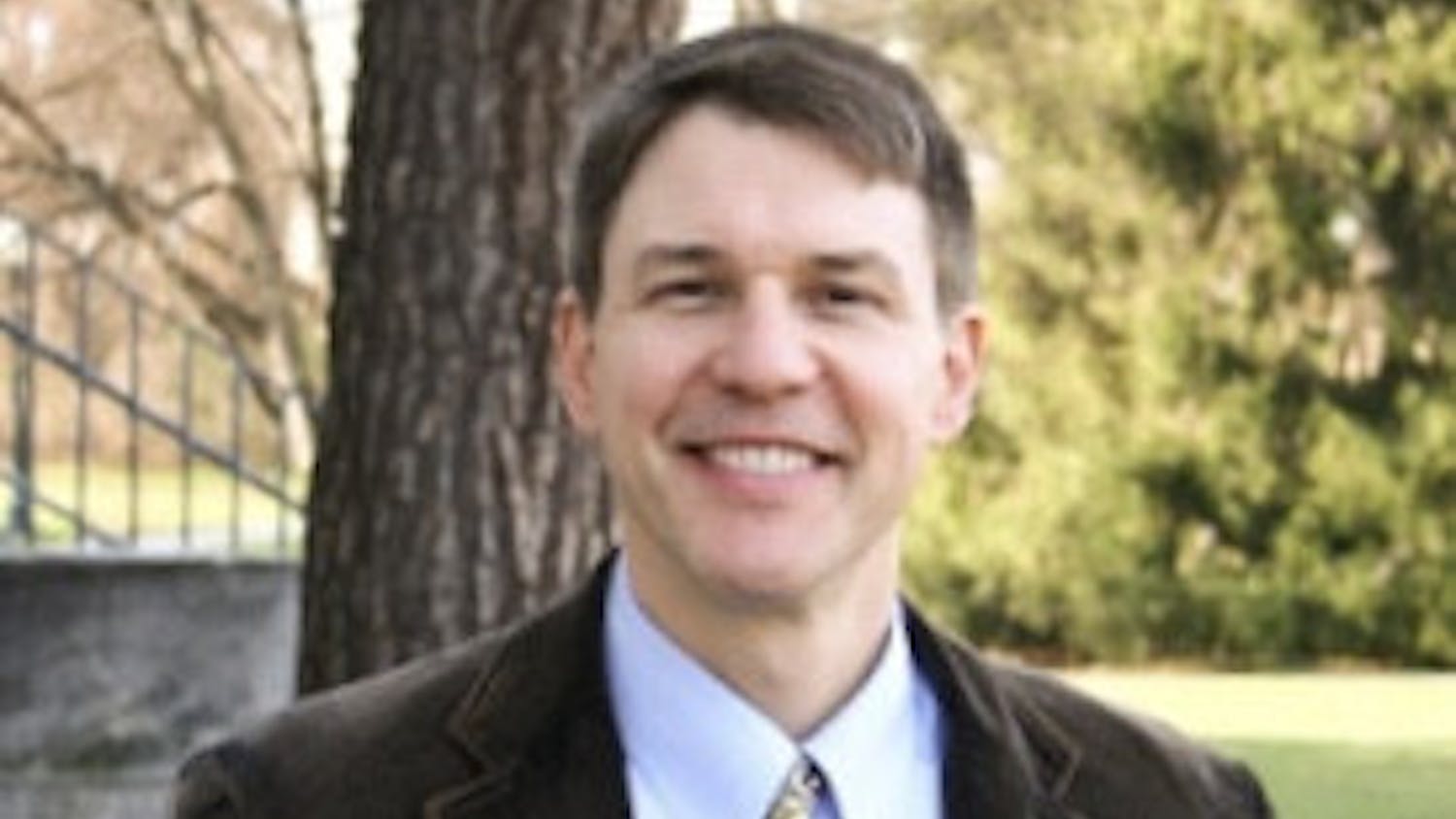The college will continue to live stream the International Politics and Economics' Symposium, "From Deng to Dollars: The Political Economy of China’s Rise" online. For those of you already out for the evening, the Current will maintain a liveblog of the discussion below, and what's a better Saturday morning than catching up on the political economy of China's rise?
----------
8:35 PM: Thanks for following, the Current is signing off for the evening from the IPEC symposium.
8:34 PM: EV is addressing the transition from the historic Communist Party, which was based much more on ideology, as opposed to today's party, where leaders will attend special schools and receive large salaries. YH adds that you need both economic and political centralization to avoid corruption. He is now returning to social media, suggesting that one can avoid censorship through criticizing policies, as opposed to political leaders. Additionally, there is more knowledge of corruption now thanks to social media. Unlike the Middle East, where the social media has translated into mobilization, the focus in China has really been on information dissemination; however, this may be now shifting toward mobilization, as seen through the recent protests against Japan. SR concludes in stating, if you stay part of the system, that's when salaries rapidly increase; after a time, fifteen million becomes chunk-change.
8:24 PM: Taking many questions at once now due to limited time, which will lead into a final discussion on the most interesting topics.
8:20 PM: We're moving into questions: 'There's certainly dissatisfaction, but there doesn't seem to be a consensus about what to do about? How will that consensus be reached? Ordinary citizens don't seem to know what they'd like to see, and this is in the city, which tends to be more united than the rural areas.' SR begins by speaking about his field work in the rural areas, where he asks people if they've ever seen a riot; most have not, and many are satisfied, as each generation tends to be improving, even if those in the city are becoming much wealthier. But this is with 10% growth! What happens when that declines, the "bubbles of expectation" begin to pop, and there's no more hope? "I'm worried about rural dissatisfaction in 2025." EV continues by discussing the sociology of political movements and protests; he says that many of these rabble-rousers are former, hard-working university students, who see an unfair world and the Communist Party rewarding its own. YH concurs with SR, saying that everything will depend on economic growth; he also talks about the power of social media, removing the isolation from events in China. For example, all those whose homes are taken by the government can now communicate with one another.
8:08 PM: The discussion has returned to academic predictions of economic crises or political movements. YH states the unpredictable things shake the system the most, even if such a system was previously labeled strong by academics.
8:05 PM: EV has continued arguing that the dissatisfaction could actually encourage a small group of high-level leaders to institute real change with more transparency and more regular legal procedures; the incoming government may even follow such a scenario. However, YH reminds listeners of the "overlapping" political system of China, where the new government isn't truly free of the influence of those leaving office. He sees the future as a continuation of the present (arresting or executing some political figure for corruption), which is a somewhat more unfortunate scenario.
7:54 PM: There's a consensus among the three speakers that no academic can predict the future accurately, but EV believes there to be an overall dissatisfaction with the outspoken population at this time. YH explains that he has noticed that those on social media sites, perhaps a reference to the most outspoken, tend to be more liberal and interested in change.
7:49 PM: YH says the government is, in fact, cracking down on corruption. And in terms of the severity of the punishment (i.e. execution), China may be the harshest in the world in punishing corruption. He continues that transparency would require decentralization and taking away some of the central government's power. SR interjects, asking who will monitor these things on more local levels? YH suggests studying other countries in trying to gain more facts in successful transition from centralization to decentralization, from corruption to less corruption.
7:43 PM: The roundtable has begun as a discussion between the three panelists, debating the effectiveness of China's government in solving the country's largest issues. How do we rate the government's effectiveness in comparison with the United States or Japan, where it appears even more difficult to pass any policies? Or should we look at it through a lens of combatting corruption, where the government has not been as effective. EV argues the government needs more transparency, which will be resisted by many of these older leaders; combatting transparency could kill the party, while not combatting it could kill the nation.
7:28 PM: Fairly large crowd for a Friday evening with a mix of students, faculty, and community members. Professor Erik Bleich has introduced this roundtable as something of a "cafe" discussion with questions following soon after.
7:15 PM: Four chairs are set up at the front of MBH 216; a small, but growing audiance awaits the arrival of the symposium's three speakers, Ezra Vogel (EV), Yasheng Huang (YH), and Scott Rozelle (SR).
Comments




